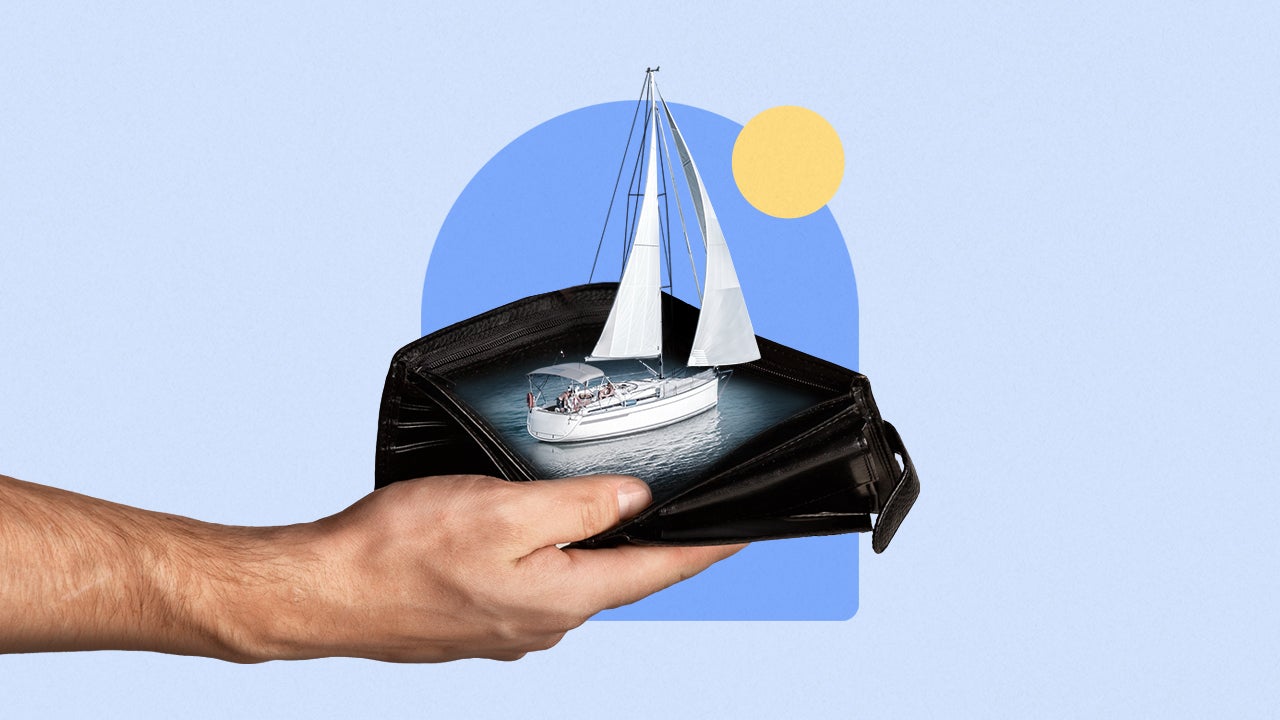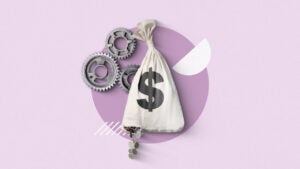How do boat loans work?

Key takeaways
- Boat loans are a type of personal loan that is used exclusively for marine craft-related expenses.
- You can get a boat loan from an online lender, bank, credit union or marine lender.
- Not all lenders offer boat loans, but some may allow you to use a personal loan for boating-related expenses.
- To qualify for a favorable interest rate on a boat loan, you’ll most likely need an excellent credit score, stable income and low debt-to-income ratio.
A boat loan is a type of installment loan used to purchase a boat or other marine craft. Like auto loans and traditional personal loans, boat loans usually come with fixed interest rates and a set repayment term.
On average, costs for a new boat are between $15,000 and $75,000, according to the National Boat Owners Association. Luxury vessels may cost millions. Financial institutions and marine-specific dealerships offer loans to spread that cost out over a term you can afford.
What are boat loans?
Boat loans are personal installment loans used for purchasing boats or other marine craft. This means that your funds are sent in a lump sum and are repaid in predetermined monthly payments. The average boat loan term ranges between two to 15 years, but some lenders offer extended repayment terms up to 20 years for larger loans.
Dealerships usually offer secured boat loans that require you to back the loan with collateral. Most non-dealership lenders offer unsecured personal loans that don’t require collateral but are harder to be approved for.
How do boat loans work?
Each lender’s loan terms, eligibility criteria and restrictions differ. Unlike traditional lending products, boat loans come in both secured and unsecured forms. The boat loans available to you will vary based on your financial health and the lender you choose to work with.
- Loan amount: If you choose to finance a boat using a personal loan, you will be able to borrow between $1,000 and $100,000, depending on the lender. If you opt for dealership financing, the amount you can borrow will be based on your creditworthiness and the vessel, among other factors.
- Repayment terms: Most lenders offer boat loans with repayment terms up to 15 years, although it is possible to find terms up to 20 years. Unsecured boat loans often have shorter terms, maxing out around seven years.
- Down payment: Not every lender requires a down payment. If the lender does require it, you can expect to pay between 10 percent and 20 percent of the boat’s purchasing price.
- Interest rate: Like other loans, boat loan rates are based on your credit and finances. Most lenders have an annual percentage rate (APR) ranging between 7 percent and 35.99 percent.
You can use a boat loan calculator to estimate your payments based on your desired terms and expected APR. As of December 2024, the average personal loan rate is 12.29 percent. Any rate that falls below this average is considered a good rate.
Types of boat loans
Lenders that offer boat financing generally offer both secured and unsecured loans. Secured loans, while more risky for the borrower, often have better terms than unsecured loans. However, both come with advantages and potential drawbacks that could impact your financial health for years.
To set yourself up for financial success, review your finances to determine which type of loan is most reasonable for your current budget and long-term goals.
Secured boat loans
Secured loans are best for borrowers with fair-to-good credit who are certain they can make the monthly payments until the balance is paid off entirely.
Secured boat loans require collateral, such as the boat you’re buying. Terms may be as long as 20 years, giving you a much lower monthly payment than you would have with an unsecured loan. Most unsecured personal loans have terms of up to seven years. You may also have a better chance of getting approved for a secured loan if you have lower credit since the lender can seize the collateral if you default.
However, a longer term means that you will pay more in interest over time. Carefully consider the monthly payment against the full cost of the loan before committing to a longer term.
Other risks of secured loans include nontraditional payment or rate structures. For example, some come with variable rates, which fluctuate based on market conditions. You might also see balloon payments. In exchange for lower monthly payments, you make one large lump-sum payment at the end of the loan.
Types of secured boat loans
- Secured personal loans: Some lenders offer generic secured personal loans, but it is rare and you may be required to put a savings account or CD up as collateral. Depending on the amount you have as collateral, some banks — like Fifth Third Bank — offer secured loans up to $500,000. Just ensure the lender allows its funds to be used on boat-related expenses.
- Secured marine loans: Marine dealerships may also provide in-house or third-party loans that are already approved for boating-related purchases. These loans may also come with unique perks like extended service plans and insurance coverage.
- Home equity loan: Home equity loans use your home’s equity as collateral. Most lenders allow you to borrow up to 80 or 90 percent of your home’s equity, which may seem like a good option for those who have paid off their mortgage. However, like other forms of secured debt, you risk your home or property if you default.
Unsecured boat loans
Borrowers with excellent credit will benefit most from an unsecured boat loan. Those who want to purchase an older model may also need to opt for an unsecured loan.
Because unsecured loans have lower amounts and shorter terms, they may be a good choice for financing older, used models. However, they often have large minimum and maximum rate ranges. It’s a good idea to prequalify with multiple lenders before officially applying. Prequalification, if offered, allows you to preview rates you could receive after submitting a formal application.
While unsecured can be used for just about any purpose, it’s still encouraged that borrowers make sure they can use the funds for boating-related expenses.
Pros and cons of boat loans
Boats are big, long-term expenses. To make sure you’re walking away with the best option for your needs, consider both the pros and cons before laying down any money.

Pros
- Breaks up the cost into smaller, more manageable installments.
- Depending on the lender, boating-related may also be covered.
- Rates are low for those with a good credit score.
- Payments can be low with a long term.

Cons
- May be difficult to be approved for larger amounts.
- Secured loans will risk your collateral if you default.
- High interest rates could lead to paying much more than you originally borrowed.
- Longer loan terms mean paying more interest over the life of the loan.
Is a boat loan right for me?
If you can qualify for a low rate and comfortably afford to repay the loan on time, a boat loan could be a smart move. Boats are pricey, so for most people, a loan will be the best decision — provided you are able to manage payments for the length of the loan term.
On the flip side, a boat loan may not be a wise move if you aren’t able to handle payments. You should also factor in the maintenance costs of owning a boat. Like a car, boats cost more than the monthly payment, so you need to be able to handle docking fees, insurance and other regular expenses before borrowing.
The final factor you should consider is whether you want to shop for a new or used boat. The price tag on the boat — and the cost of maintenance — will depend on the age of the vessel. New boats will cost more but may need as many repairs as an older used model.
Bottom line
Taking out a boat loan is a long-term commitment with multiple risks if the monthly payments aren’t met. Review your finances to see if you can afford to repay the loan on time before moving forward. If you decide that a boat loan is right for you, prequalify with multiple lenders to compare boat loan offers.
Why we ask for feedback Your feedback helps us improve our content and services. It takes less than a minute to complete.
Your responses are anonymous and will only be used for improving our website.
You may also like

Business loan prepayment penalties: What are they?

How much does a boat cost to purchase and own?

What is an unsecured business loan and how does it work?




